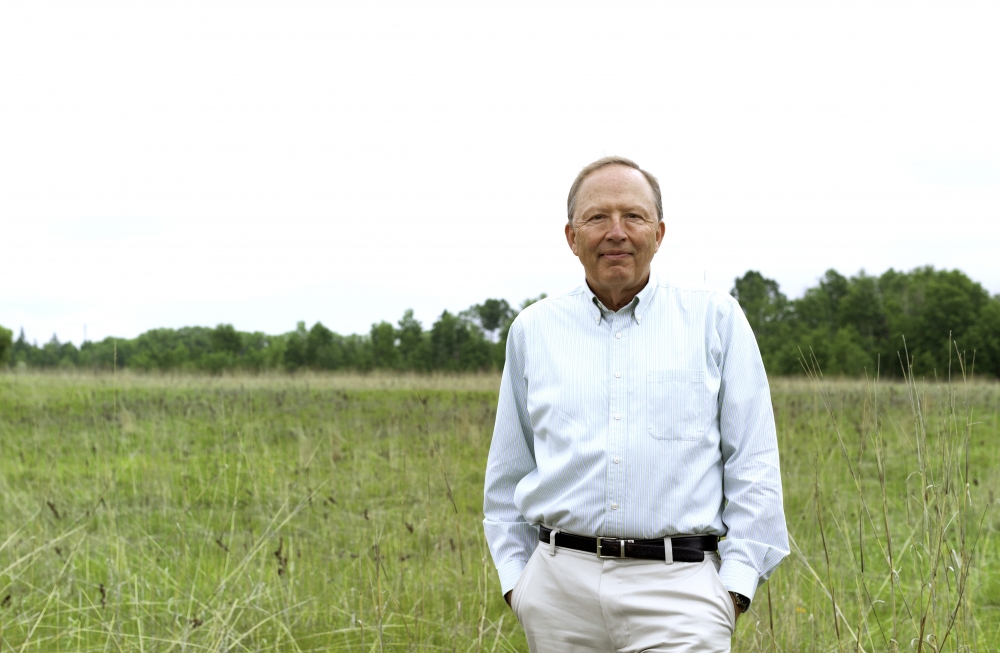
On the Frontiers of Knowledge
David Tilman, professor at UC Santa Barbara’s Bren School of Environmental Science & Management, has received the BBVA Foundation Frontiers of Knowledge Award in the Ecology and Conservation Biology category in recognition of his long-term contributions to ecological research. A BBVA jury comprising international experts in ecology and conservation selected Tilman for the award.
The BBVA Foundation promotes, funds and disseminates world-class scientific research and artistic creation. The foundation established the Frontiers of Knowledge Awards in 2008 to recognize those responsible for outstanding contributions and radical advances in a broad range of scientific and technological areas.
Tilman will travel to Madrid in June to receive the award, which includes a cash prize of 400,000 euros (about $434,000).
“The BBVA Award holds great meaning for me because its earlier recipients, including Dan Janzen, Ed Wilson and Paul Ehrlich, are giants of the field whom I deeply admire,” Tilman said. “It is also special since it recognizes my lifelong research on biodiversity.”
Tilman first received wide recognition for a paper published in the journal Nature in 1994 that became one of the most cited articles in modern ecology. In it, he challenged existing paradigms of ecology by quantifying, for the first time, how biodiversity enhances the stability and resilience of ecosystems.
“We have to understand the importance of biodiversity, because we are living in a time when humans are taking high-diversity natural systems and making them very simple, with very low diversity,” Tilman said. ”Our work has shown that this severe decline has significant long-term impacts on the quality of these ecosystems and how they function, which means they can no longer provide us with the services we want from them, such as clean water or the storage of carbon.”
The jury specifically singled out Tilman’s efforts to unravel one of the oldest mysteries in ecological science, dating from Charles Darwin’s time: How can so many species coexist within a single ecosystem? Tilman concluded that each species specializes in what it does best at the expense of other possible uses of its resources, and that this trade-off — between, for instance, greater ability to compete vs. greater ability to disperse — permits multiple species to coexist.
More recently, Tilman has brought his biodiversity work to the biofuels area, suggesting that plant-based fuels can be environmentally advantageous only if they enhance biodiversity and are made with plant species that are not consumed by humans and that grow on lands unsuitable for crops.
Finally, the jury noted Tilman’s finding that degrading an ecosystem might have more complex and long-lasting impacts on the species it harbors than previously thought. Tilman’s work in this area led him to coin the phrase “extinction debt,” referring to a situation in which the effects of habitat destruction on species extinctions may occur generations after the disturbance.
Tilman, who divides his time between the Bren School and the University of Minnesota, is currently working on ways to boost agricultural productivity without simultaneously increasing environmental impacts. In one of his latest papers, published in Nature in November 2014, he pursued this area of study by exploring the links connecting diet, human health and climate change.



